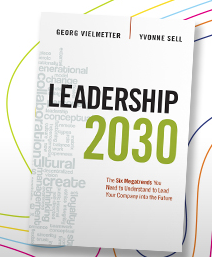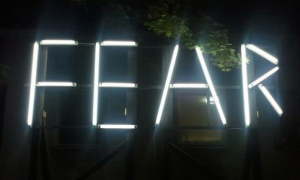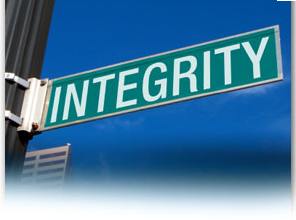“What Happened To My Mental Health?”
In Part I of “Becoming Sane in a Turbulent, Interconnected, Unpredictable World,” I�wrote about why you need a new kind of emotional resiliency for success and well-being in today�s world.� Here, I�ll extend those thoughts about resiliency to psychological health in general.� Just as we need to redefine resiliency, I think we need to reformulate what a psychologically healthy adult looks like in this transformed world. �Here are my ideas about that:
Throughout most of the last century, adult psychological health has been largely equated with good management and coping skills: Managing stress within your work and personal life; and effective coping with or resolution of whatever emotional conflicts you brought with you into adulthood � and we all bring along some.
So, in your work that might include being clear about your career goals, and working your way up a fairly predictable set of steps to achieve power, recognition and financial success � all the things that we�ve equated with adult maturity and mental health.
At home, it would mean forming a long-term relationship that withstands the power struggles and other differences that often lead to affairs or even divorce.� You would assume that the healthy adult doest that via compromise at best, or disguised manipulation at worst.� In addition, you would accept �normal� decline of intimate connection and vitality over time.
But the fallout from the worldwide upheaval over the last few years have turned all those criteria of health upside down.� To be clear, it�s important to be able to manage conflicts that could derail your career or personal life. �But doing that isn�t enough to ensure future success, sanity or well-being in this turbulent and highly interdependent world we now live in.
Massive, interconnected forces within this globalized, unpredictable world add a host of new emotional and behavioral challenges to living a psychologically healthy, well-functioning and fulfilling life.
I deal with the fallout almost daily: People who�ve functioned pretty well in the past, but now feel as if they�re standing on tectonic plates shifting beneath them. Despite their best efforts, they struggle with mounting anxiety about the future of their own and their children�s lives, and confusion about their values and life purpose.
There�s the former Wall Street financial executive who told me he�d always defined himself by �making it through the next end zone� in his career, working long hours to ensure financial success. Now, as his company � and career � crumbled, he found that in addition to sacrificing time with his family, he had sacrificed his health: He has diabetes and high blood pressure. �Kind of a reverse �deal-flow,� � he lamented to me.
And the management consultant, pressured to ratchet up her travel to keep her career on track. �I�d been coping with everything, I thought,� she told me, �though I don�t like needing Zoloft to do it.� Instead of her career becoming more predictable as she gained seniority, her career propelled her into an even wilder ride. �Now I don�t have enough time for my daughter or my husband,� she said. �What kind of life is this? . . . My husband�s checked out, emotionally. And what am I teaching my daughter?�
Or the lawyer, who�d prided himself on �eating what I kill, and I�m a good killer.� He told me he has �more money than I ever dreamed of,� but also says that, �secretly, I hate what I do for a living.� But what�s the alternative, he asks, without �looking like a dysfunctional failure if I opt out?� After a failed marriage, he entered therapy and had begun to realize how his father�s unfulfilled dreams of �success� have impacted his own life � when suddenly his father died. �I�m in a tailspin,� he says; depressed and confused about what his own purpose in life is.
All of these people were on the kinds of life paths they expected would bring them predictable rewards. But counting on that linear upward climb is now hazardous to your mental health.
In fact, following that old path can make you more vulnerable to Continue reading →
 By Douglas LaBier • March 2, 2021
By Douglas LaBier • March 2, 2021



































